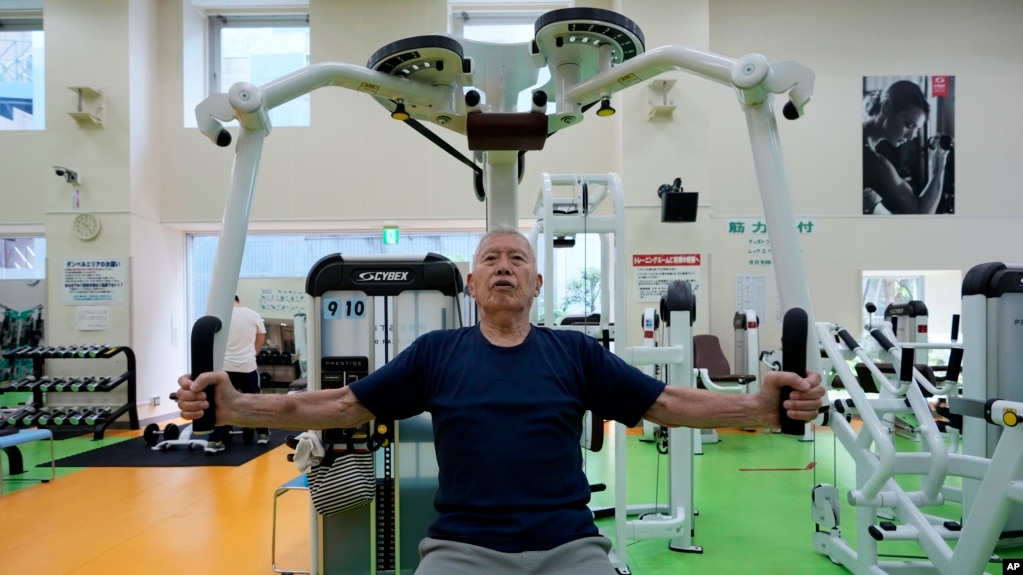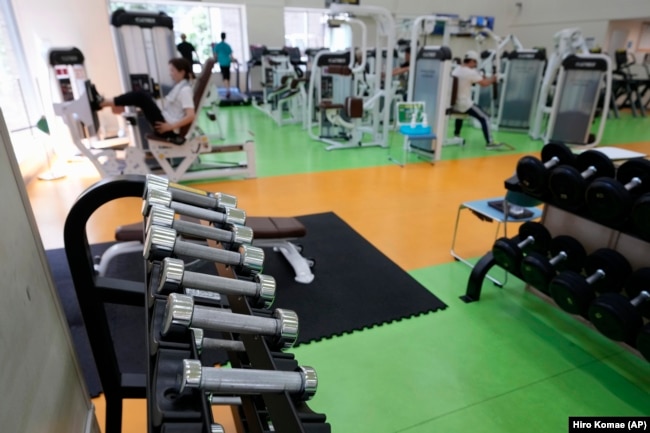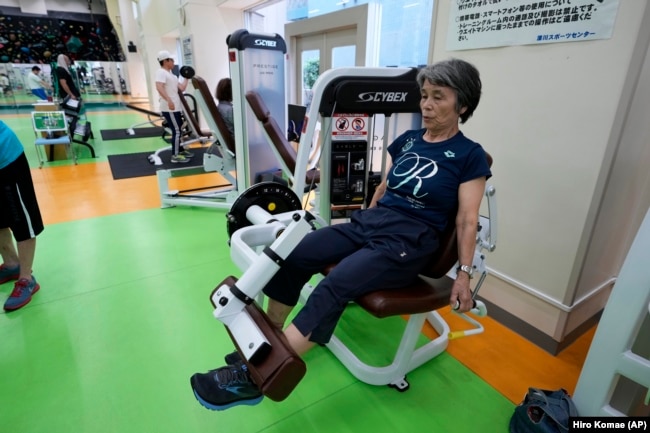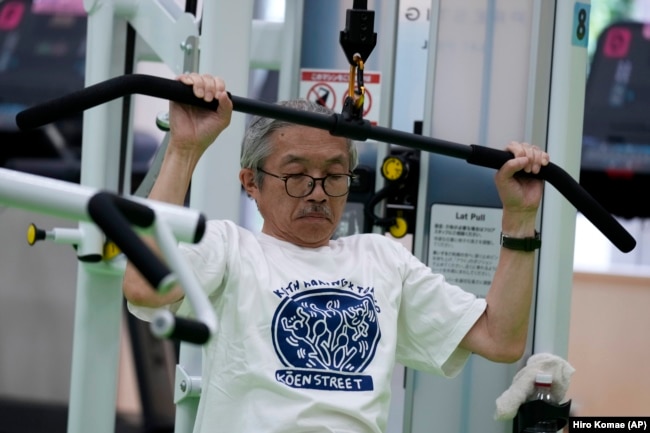AUDIO
Can Resistance Training Keep Us Feeling Young?

Some experts suggest that lifting weights is the best way to keep our bodies strong and healthy as we age. Weight lifting is a type of resistance training.
Penn State University College of Medicine experts define resistance training as "a type of exercise that causes your muscles to work against an outside resistance."
Some experts claim resistance training can even slow aging.
Marcas Bamman has researched the effects of weight-resistance training on aging bodies for many years. He shared his advice recently with the Associated Press.
“Resistance training is in many ways the true fountain of youth,” Bamman said.
Our bodies do have biological limits. But Bamman said older people put too few demands on their bodies, not too many. He said that most age-related loss of strength, flexibility, and endurance comes from the lack of physical demands on our bodies, such as exercise.
Bamman said that strength training for several months can increase muscle mass and ability to the level of people 30 to 35 years younger. He added that a lot of people are interested in that message.
Getting started
Bamman’s advice is mainly for people 60 years of age or older. However, he said no one should wait to start resistance training. He also suggests going to a gym to work out with weight machines. For beginners, he said machines are better.
However, experts at the Centers for Disease Control and Prevention say you do not need weight machines to do strength training. You can strengthen your muscles by using free weights — such as barbells or dumbbells — and resistance bands. You can also use your own body weight, for example, by doing push-ups or similar exercises.
Before starting any resistance training, experts suggest getting the advice of a medical doctor. For those using a gym with weight machines, Bamman also suggests getting a trainer, a person to teach you how to use the equipment. “It’s actually quite safe,” he said. But he added that a good trainer “…can teach the movements properly.”

How much is enough?
You can go to a gym, do training at home or work out in a park. However, both Bamman and the CDC suggest doing resistance training twice a week. Bamman added that three times a week is even better. He also suggests non-weight-training days in between. For example, if you strength train on Monday, Wednesday, and Friday, then you should rest on Tuesday and Thursday.
He said, before resistance training, start with five to 10 minutes of light activity and stretching to warm up. Then, do between eight and 10 different resistance exercise movements.
Repeat each movement 10 times. Do these sets of 10 repetitions three times. Then move on to the next movement. When you reach the 10th repetition, you should feel you cannot do many more. If you could have done 10 more, you might want to increase the resistance.
Bamman also suggests that people should keep moving during their training. “Sometimes you see people who sit on the machine, do a set and then play with their phone for three to four minutes,” he observed.
Women might gain more than men
Bamman said strength training is important for both men and women. However, he said women might gain even more from resistance training than men.
Resistance training is a way to prevent osteoporosis, the loss of bone density. Bamman said that over time women face an increased risk of bone loss. They can develop problems in their hips and lower back.
Yasuko Kuroi is 72 and started resistance training about 20 years ago. She spoke to the AP at a public recreation center in Tokyo. She said, “I saw the men in the gym and I thought I could do that, too.”

The body demands work
Experts at Stanford University say research shows that between the ages of 20 and 80 we can lose between 35 percent and 40 percent of our muscle mass.
There is a popular English expression that can relate to the body’s muscle mass: “Use it or lose it.”
Bamman says we are too easy on our bodies. He criticized health care professionals who are too easy on older people.
“Our human body is a demand-based system,” he explained. He added that if you continuously put low demands on your body, your body will adapt to that low demand.
“That’s why we lose muscle mass, that’s why we get weaker. We’re not demanding much,” Bamman said.

However, if you put higher demands on your body with such activities as resistance training, your body has to adapt to these higher demands. The body adapts by making stronger bones and bigger muscles.
Bamman used the example of space flight, or extended bed rest. In these situations, people quickly lose strength.
“All of our systems as we age are capable of responding and adapting. They just need the stimulus.” He said he has seen positive effects for people in their 70s and 80s, and even for some in their 90s.
Bamman, 57, joked that he is now closer in age to the people who he studies. But he warned that there are no shortcuts. He criticized some programs for older adults that use only seated exercises. He said these do not put enough demands on the body.
______________________________________________
Words in This Story
physiology –n. the science dealing with how living things physically operate
fountain of youth –idiom something that makes older people feel or believe they are young again
flexibility –n. the ability to stretch and move the body, especially the arms, legs and back
endurance –n. the ability to do an activity for a long time
gym (gymnasium) –n. a building that has spaces and equipment for exercise
resistance bands –n. flexible or rubber devices that people stretch using their arms or legs to strengthen their muscles
push up –n. an exercise in which a person lies on the ground and pushes away from the ground with their arms
adapt –v. to ability to change behavior to meet the needs of a new situation or condition
stimulus –n. something that causes a response
shortcut –n. a quicker, easier way of doing something that usually means not doing everything that is necessary to get a good result
https://learningenglish.voanews.com/a/can-resistance-training-keep-us-feeling-young-/7689407.html